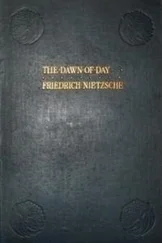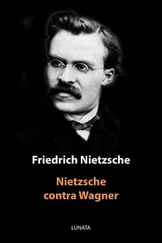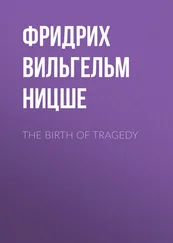Let anyone apply this point of view to Nietzsche's life and theory. Let anyone turn his life inside out, not only as he gives it to us in his Ecce Homo , but as we find it related by all his biographers, friends and foes alike, and what will be the result? Even if we ignore his works—the blooms which blowed from time to time from his life—we absolutely cannot deny the greatness of the man's private practice , and if we fully understand and appreciate the latter, we must be singularly deficient in instinct and in flair if we do not suspect that some of this greatness is reflected in his life–task.
ANTHONY M. LUDOVICI
London, July 1911 .
Part 1
The Case of Wagner: A Musician's Problem
A Letter From Turin, May 1888
"Ridendo Dicere Severum…."
Preface
I am writing this to relieve my mind. It is not malice alone which makes me praise Bizet at the expense of Wagner in this essay. Amid a good deal of jesting I wish to make one point clear which does not admit of levity. To turn my back on Wagner was for me a piece of fate, to get to like anything else whatever afterwards was for me a triumph. Nobody, perhaps, had ever been more dangerously involved in Wagnerism, nobody had defended himself more obstinately against it, nobody had ever been so overjoyed at ridding himself of it. A long history!—Shall I give it a name?—If I were a moralist, who knows what I might not call it! Perhaps a piece of self–mastery .—But the philosopher does not like the moralist, neither does he like high–falutin' words….
What is the first and last thing that a philosopher demands of himself? To overcome his age in himself, to become "timeless." With what then does the philosopher have the greatest fight? With all that in him which makes him the child of his time. Very well then! I am just as much a child of my age as Wagner— i.e. , I am a decadent. The only difference is that I recognised the fact, that I struggled against it. The philosopher in me struggled against it.
My greatest preoccupation hitherto has been the problem of decadence , and I had reasons for this. "Good and evil" form only a playful subdivision of this problem. If one has trained one's eye to detect the symptoms of decline, one also understands morality,—one understands what lies concealed beneath its holiest names and tables of values: e.g. , impoverished life, the will to nonentity, great exhaustion. Morality denies life…. In order to undertake such a mission I was obliged to exercise self–discipline:—I had to side against all that was morbid in myself including Wagner, including Schopenhauer, including the whole of modern humanity .—A profound estrangement, coldness and soberness towards all that belongs to my age, all that was contemporary: and as the highest wish, Zarathustra's eye, an eye which surveys the whole phenomenon—mankind—from an enormous distance,—which looks down upon it.—For such a goal—what sacrifice would not have been worth while? What "self–mastery"! What "self–denial"!
The greatest event of my life took the form of a recovery . Wagner belongs only to my diseases.
Not that I wish to appear ungrateful to this disease. If in this essay I support the proposition that Wagner is harmful , I none the less wish to point out unto whom, in spite of all, he is indispensable—to the philosopher. Anyone else may perhaps be able to get on without Wagner: but the philosopher is not free to pass him by. The philosopher must be the evil conscience of his age,—but to this end he must be possessed of its best knowledge. And what better guide, or more thoroughly efficient revealer of the soul, could be found for the labyrinth of the modern spirit than Wagner? Through Wagner modernity speaks her most intimate language: it conceals neither its good nor its evil: it has thrown off all shame. And, conversely, one has almost calculated the whole of the value of modernity once one is clear concerning what is good and evil in Wagner. I can perfectly well understand a musician of to–day who says: "I hate Wagner but I can endure no other music." But I should also understand a philosopher who said, "Wagner is modernity in concentrated form." There is no help for it, we must first be Wagnerites….
1.
Yesterday—would you believe it?—I heard Bizet's masterpiece for the twentieth time. Once more I attended with the same gentle reverence; once again I did not run away. This triumph over my impatience surprises me. How such a work completes one! Through it one almost becomes a "masterpiece" oneself—And, as a matter of fact, each time I heard Carmen it seemed to me that I was more of a philosopher, a better philosopher than at other times: I became so forbearing, so happy, so Indian, so settled …. To sit for five hours: the first step to holiness!—May I be allowed to say that Bizet's orchestration is the only one that I can endure now? That other orchestration which is all the rage at present—the Wagnerian—is brutal, artificial and "unsophisticated" withal, hence its appeal to all the three senses of the modern soul at once. How terribly Wagnerian orchestration affects me! I call it the Sirocco . A disagreeable sweat breaks out all over me. All my fine weather vanishes.
Bizet's music seems to me perfect. It comes forward lightly, gracefully, stylishly. It is lovable, it does not sweat. "All that is good is easy, everything divine runs with light feet": this is the first principle of my æsthetics. This music is wicked, refined, fatalistic, and withal remains popular,—it possesses the refinement of a race, not of an individual. It is rich. It is definite. It builds, organises, completes, and in this sense it stands as a contrast to the polypus in music, to "endless melody". Have more painful, more tragic accents ever been heard on the stage before? And how are they obtained? Without grimaces! Without counterfeiting of any kind! Free from the lie of the grand style!—In short: this music assumes that the listener is intelligent even as a musician,—thereby it is the opposite of Wagner, who, apart from everything else, was in any case the most ill–mannered genius on earth (Wagner takes us as if … , he repeats a thing so often that we become desperate,—that we ultimately believe it).
And once more: I become a better man when Bizet speaks to me. Also a better musician, a better listener . Is it in any way possible to listen better?—I even burrow behind this music with my ears. I hear its very cause. I seem to assist at its birth. I tremble before the dangers which this daring music runs, I am enraptured over those happy accidents for which even Bizet himself may not be responsible.—And, strange to say, at bottom I do not give it a thought, or am not aware how much thought I really do give it. For quite other ideas are running through my head the while…. Has any one ever observed that music emancipates the spirit? gives wings to thought? and that the more one becomes a musician the more one is also a philosopher? The grey sky of abstraction seems thrilled by flashes of lightning; the light is strong enough to reveal all the details of things; to enable one to grapple with problems; and the world is surveyed as if from a mountain top—With this I have defined philosophical pathos—And unexpectedly answers drop into my lap, a small hailstorm of ice and wisdom, of problems solved . Where am I? Bizet makes me productive. Everything that is good makes me productive. I have gratitude for nothing else, nor have I any other touchstone for testing what is good.
2.
Bizet's work also saves; Wagner is not the only "Saviour." With it one bids farewell to the damp north and to all the fog of the Wagnerian ideal. Even the action in itself delivers us from these things. From Merimée it has this logic even in passion, from him it has the direct line, inexorable necessity, but what it has above all else is that which belongs to sub–tropical zones—that dryness of atmosphere, that limpidezza of the air. Here in every respect the climate is altered. Here another kind of sensuality, another kind of sensitiveness and another kind of cheerfulness make their appeal. This music is gay, but not in a French or German way. Its gaiety is African; fate hangs over it, its happiness is short, sudden, without reprieve. I envy Bizet for having had the courage of this sensitiveness, which hitherto in the cultured music of Europe has found no means of expression,—of this southern, tawny, sunburnt sensitiveness…. What a joy the golden afternoon of its happiness is to us! When we look out, with this music in our minds, we wonder whether we have ever seen the sea so calm . And how soothing is this Moorish dancing! How, for once, even our insatiability gets sated by its lascivious melancholy!—And finally love, love translated back into Nature ! Not the love of a "cultured girl!"—no Senta–sentimentality. [7] Senta is the heroine in the "Flying Dutchman"—Tr.
But love as fate, as a fatality, cynical, innocent, cruel,—and precisely in this way Nature ! The love whose means is war, whose very essence is the mortal hatred between the sexes!—I know no case in which the tragic irony, which constitutes the kernel of love, is expressed with such severity, or in so terrible a formula, as in the last cry of Don José with which the work ends:
Читать дальше











